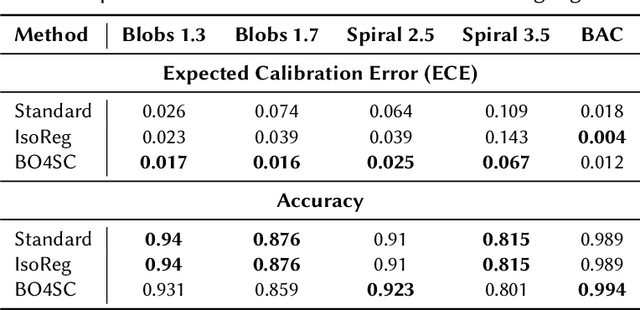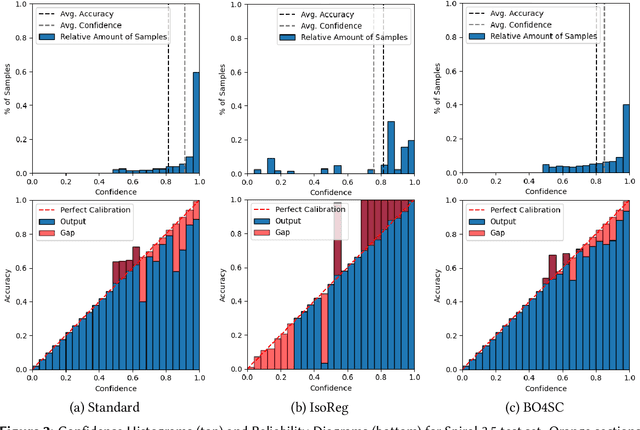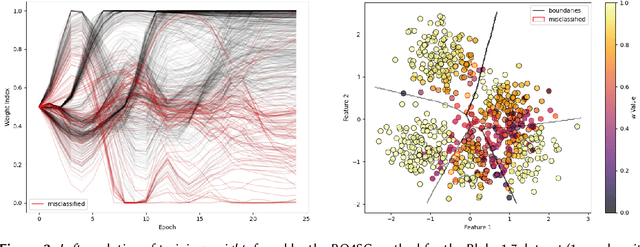Gabriele Sanguin
Exploring the Potential of Bilevel Optimization for Calibrating Neural Networks
Mar 17, 2025



Abstract:Handling uncertainty is critical for ensuring reliable decision-making in intelligent systems. Modern neural networks are known to be poorly calibrated, resulting in predicted confidence scores that are difficult to use. This article explores improving confidence estimation and calibration through the application of bilevel optimization, a framework designed to solve hierarchical problems with interdependent optimization levels. A self-calibrating bilevel neural-network training approach is introduced to improve a model's predicted confidence scores. The effectiveness of the proposed framework is analyzed using toy datasets, such as Blobs and Spirals, as well as more practical simulated datasets, such as Blood Alcohol Concentration (BAC). It is compared with a well-known and widely used calibration strategy, isotonic regression. The reported experimental results reveal that the proposed bilevel optimization approach reduces the calibration error while preserving accuracy.
 Add to Chrome
Add to Chrome Add to Firefox
Add to Firefox Add to Edge
Add to Edge